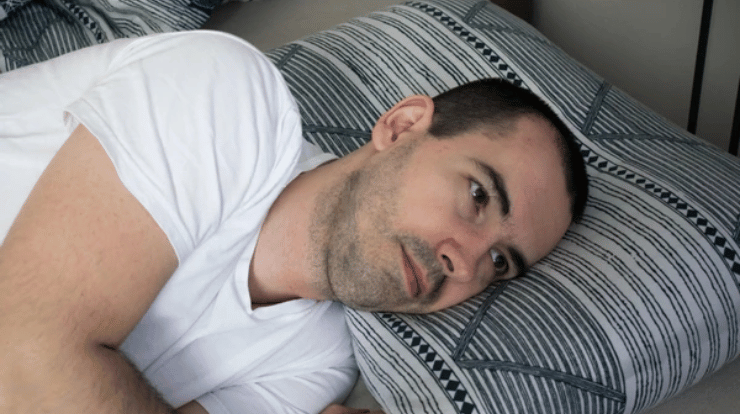
All parents want to know when do babies sleep through the night. Unfortunately, there is no one answer to this question. Every baby is different and will reach this milestone at his or her own pace. On average, babies start sleeping through the night sometime between 4 and 6 months old. However, there are some general things you can expect in terms of your baby’s sleep patterns.
The first few months: In the early weeks and months, it is normal for your baby to wake up several times during the night to feed. Babies have small stomachs and need to eat often. Your baby may also not be able to sleep for long stretches at a time due to the fact that he or she is not yet able to self-soothe.
The fourth or fifth month: By this point, your baby should be able to sleep for longer periods of time at night. He or she may still wake up once or twice for a feeding, but will likely be able to go back to sleep without much difficulty. If your baby is still waking up multiple times a night, try implementing a bedtime routine such as reading a book before sleep. This will help signal to your baby that it is time to sleep.
The sixth month: At six months, most babies are able to sleep through the night without needing feeding. If your baby is still waking up during the night, it could be due to teething pain or separation anxiety. Both of these issues are temporary and should resolve themselves in time. If you are concerned about your baby’s sleep patterns, speak with your pediatrician.

3 Reasons Why Your Baby May Not Be Sleeping Through the Night
A Few Reasons Why Your Baby May Not Be Sleeping Through the Night:
1. Growth Spurts
A common reason why babies wake up at night is due to a growth spurt. Growth spurts usually occur around 2 to 3 weeks, 6 weeks, 3 months, and 6 months old and can last anywhere from a few days to over a week. During a growth spurt, your baby may be hungry more often and want to feed more frequently than usual. While it’s normal for your baby to cluster feed during a growth spurt, try not to let them feed for too long as this will only stimulate their digestive system and keep them awake longer.
2. Teething
Another common reason for nighttime awakenings is teething. Most babies start teething around 4 to 7 months old, but it can start as early as 3 months or as late as 12 months. TEETHING TYPICALLY CAUSES SYMPTOMS SUCH AS IRRITABILITY, CONSTANT MOUTHING AND BITING OF SURFACES, AND SLEEPLESSNESS. If your baby is teething, they may want to nurse more often or bite down on something hard to ease the pain—neither of which will help them (or you) get some rest.
3. Sleep Regressions
Sleep regressions are another common reason why babies wake up at night. A sleep regression is when your baby suddenly starts waking up more frequently or has trouble falling asleep even though they’ve been sleeping well up until that point. Sleep regressions are often caused by changes in your baby’s schedule or environments, such as adding solid foods to their diet or starting daycare. Sleep regressions typically last for 2 to 4 weeks before your baby’s sleep patterns go back to normal.
How to get the baby to sleep through the night?
If you’re breastfeeding: your baby is likely to wake up at least once during the night to feed. This is perfectly normal and nothing to worry about. However, if you want to try and promote longer stretches of sleep, there are a few things you can do.
- Firstly, make sure that you’re feeding your baby enough during the day so that they’re not too hungry at night.
- Secondly, try putting your baby to bed drowsy but not asleep so that they’re more likely to drift off on their own.
- Finally, consider giving them a dream feed before you go to bed yourself. This involves waking them up for a final feed of the night just before you go to sleep so that they (and you!) can get a good night’s rest.
If you’re formula-feeding: your baby may be able to sleep for longer periods of time without needing a feed. However, it’s important not to let them go more than 4 hours without eating as this could lead to dehydration. You can also try using a formula with added iron which has been shown to promote longer stretches of sleep.
There are also some general things you can do to help your baby sleep better at night regardless of whether they’re breastfed or formula-fed. Firstly, establish a bedtime routine and stick to it as much as possible so that your little one knows it’s time for sleep. Secondly, make sure their bedroom is dark, quiet, and cool as these are ideal conditions for sleeping. Finally, try not to leave them alone in their crib to cry it out as this can be harmful to their development and cause long-term emotional damage.
When do babies sleep through the night without feeding?
One of the most common questions new parents have is when babies sleep through the night without feeding. Unfortunately, there is no one-size-fits-all answer to this question. Babies are unique and develop at different rates, so some may start sleeping through the night as early as six weeks, while others may not start doing so until four or five months.
The best way to determine when your baby will start sleeping through the night is to pay attention to their cues. If they seem sleepy and are starting to rub their eyes, it’s likely that they are ready for a long stretch of sleep. However, if they seem restless and are still wide awake, it’s best to put them down for a short nap instead. Over time, you’ll get to know your baby’s sleep patterns and will be able to better predict when they will be able to sleep through the night.






